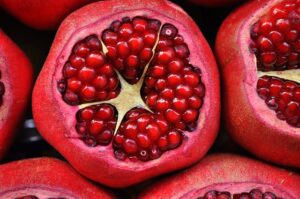Introduction
Octopus is a popular seafood delicacy enjoyed in many cuisines around the world. It is known for its unique texture and flavor. One question that often arises is how much protein is present in octopus. In this article, we will delve into the protein content of octopus and explore its nutritional value.
Protein Content in Octopus
Octopus is a good source of protein, making it a valuable addition to a balanced diet. The protein content in octopus can vary depending on the species, size, and preparation method. On average, octopus contains approximately 25 grams of protein per 100 grams of cooked meat. This makes it a protein-rich food choice for those looking to meet their daily protein requirements.
Protein is an essential nutrient that plays a vital role in various bodily functions. It is responsible for building and repairing tissues, supporting immune function, and aiding in the production of enzymes and hormones. Including octopus in your diet can help you meet your protein needs and contribute to overall health and well-being.
Other Nutritional Benefits of Octopus
In addition to protein, octopus offers several other nutritional benefits. It is low in fat and calories, making it a healthy protein option for those watching their weight. Octopus is also a good source of vitamins and minerals, including vitamin B12, vitamin C, iron, and potassium.
Vitamin B12 is essential for the production of red blood cells and the proper functioning of the nervous system. Vitamin C is an antioxidant that supports immune function and collagen production. Iron is crucial for oxygen transport and energy production, while potassium helps maintain proper fluid balance and supports heart health.
Preparation Methods and Protein Retention
The protein content in octopus can be influenced by the cooking method used. Boiling or steaming octopus helps retain the protein content, while frying or grilling may result in some protein loss. It is important to note that the protein content mentioned earlier refers to cooked octopus. Raw octopus may have a slightly different protein composition and content.
Conclusion
Octopus is a protein-rich seafood option that offers various nutritional benefits. With approximately 25 grams of protein per 100 grams of cooked meat, it can be a valuable addition to a balanced diet. Along with protein, octopus provides vitamins, minerals, and is low in fat and calories. The protein content can be influenced by the cooking method used, with boiling or steaming being preferable for protein retention. Including octopus in your diet can help you meet your protein needs and enjoy a flavorful and nutritious seafood option.
References
– National Nutrient Database for Standard Reference Legacy Release. (n.d.). Retrieved from fdc.nal.usda.gov
– Octopus. (n.d.). Retrieved from seafoodhealthfacts.org













